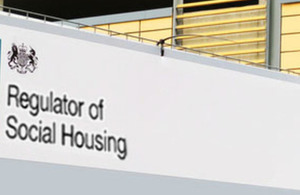- Legal duty to self-isolate comes into force today (Monday 28 September), to ensure compliance and reduce spread of COVID-19
- Support is now available for people on low incomes who are unable to work while self-isolating through the £500 Test and Trace Support Payment
- Fines for those breaking the rules now in place starting at £1,000 and increasing up to £10,000 for repeat offenders
Those on lower incomes who cannot work from home and have lost income as a result will also be eligible for a new £500 Test and Trace Support Payment.
Local authorities will be working quickly to set up Test and Trace Support Payment schemes and we expect them to be in place by 12 October. Those who are told to self-isolate from today will receive backdated payments, if they are eligible, once the scheme is set up in their local authority.
Health and Social Care Secretary Matt Hancock said:
Anyone can catch coronavirus and anyone can spread it. We all have a crucial part to play in keeping the number of new infections down and protecting our loved ones.
As cases rise it is imperative we take action, and we are introducing a legal duty to self-isolate when told to do so, with fines for breaches and a new £500 support payment for those on lower incomes who can’t work from home while they are self-isolating.
These simple steps can make a huge difference to reduce the spread of the virus, but we will not hesitate to put in place further measures if cases continue to rise.
As the infection is now spreading rapidly again, these new measures will help ensure compliance and reduce the spread of COVID-19.
A number of steps will also be taken to make sure that people are complying with the rules. These include:
- NHS Test and Trace call handlers increasing contact with those self-isolating
- using police resources to check compliance in highest incidence areas and in high-risk groups, based on local intelligence
- investigating and prosecuting high-profile and egregious cases of non-compliance
- acting on instances where third parties have identified others who have tested positive but are not self-isolating
Recognising that self-isolation is one of the most powerful tools for controlling the transmission of COVID-19, this new Test and Trace Support payment of £500 will ensure that those on low incomes are able to self-isolate without worry about their finances.
Just under 4 million people who are in receipt of benefits in England will be eligible for this payment, which will be available to those who have been notified that they must self-isolate from today
Home Secretary Priti Patel said:
These new measures are about saving lives. Everyone must take personal responsibility and self-isolate if they test positive or if told to do so by NHS Test and Trace.
For those who fail to do so, the police will enforce the law. These new fines are a clear sign that we will not allow those who break the rules to reverse the hard-won progress made by the law-abiding majority.
Local Government Secretary Rt Hon Robert Jenrick MP said:
Councils across the country are working at pace to set up new self-isolation support payment schemes and ensure people in their communities have the information and advice they need to stay safe and reduce the spread of the virus.
Since the start of the pandemic councils have played a crucial role in supporting businesses and their communities, and I want to thank them for their hard work as they roll out this new support for those who need to self-isolate.
Fines will also be introduced from today for those breaching self-isolation rules, starting at £1,000, in line with the existing penalty for breaking quarantine after international travel. This could increase to up to £10,000 for repeat offences and the most serious breaches, including for those preventing others from self-isolating.
Employers who force or allow staff to come to work when they should be self-isolating will also be liable for fines of up to £10,000, sending a clear message that this will not be tolerated.
If someone or another member of their household has symptoms of coronavirus, they should, as now, isolate immediately. If someone receives a positive test result, they are now required by law to self-isolate for the period ending 10 days after displaying symptoms or after the date of the test, if they did not have symptoms. Other members of their household must self-isolate for the period ending 14 days after symptom onset, or after the date of the initial person’s positive test.
If someone is instructed to self-isolate by NHS Test and Trace, because they have had close contact with someone outside their household who has tested positive, they are legally required to self-isolate for the period notified by NHS Test and Trace. Both household and non-household contacts must self-isolate for the full period, regardless of whether they have symptoms and, if they develop symptoms and take a test, regardless of whether any test taken gives a negative result.
Individuals will receive this payment on top of any Statutory Sick Pay or benefits they receive. Currently individuals in employment who are self-isolating and cannot work from home are entitled to Statutory Sick Pay (SSP) if they earn more than £120 a week from a single employer. Depending on their circumstances, they might also be able to claim Universal Credit and/or new style Employment and Support Allowance.
The criteria for self-isolation payment is:
- have been instructed to self-isolate by NHS Test and Trace, either because they’ve tested positive or are the close contact of a positive case
- are employed or self-employed
- are unable to work from home and will lose income as a result
- are currently receiving Universal Credit, Working Tax Credit, income-based Employment and Support Allowance, income-based Jobseeker’s Allowance, Income Support, Housing Benefit and/or Pension Credit
This will initially be England-only, but we are engaging with devolved administrations to explore opportunities for a UK-wide scheme seeking as much alignment as possible.
Councils will also have discretion to make payments to those who don’t receive the qualifying benefits, but are on a low income and could suffer financial hardship as a result of not being able to work.
As per the current guidance, the legal obligation to self-isolate will afford specific exemptions including for those who need to escape from illness or harm during their isolation, and those that require care.
Local Authorities will focus on the principle of encouraging, educating and supporting self-compliance. Where there is clear evidence that someone is not following the rules, the police will determine what follow-up action to take.
Users of the official NHS COVID-19 contact tracing app are anonymous and we cannot force them to self-isolate or identify them if they are not self-isolating. The app will advise a user to self-isolate if they have come into close contact with someone who has tested positive for coronavirus. Users should follow that advice to protect their loved ones and stop the spread of the virus.

